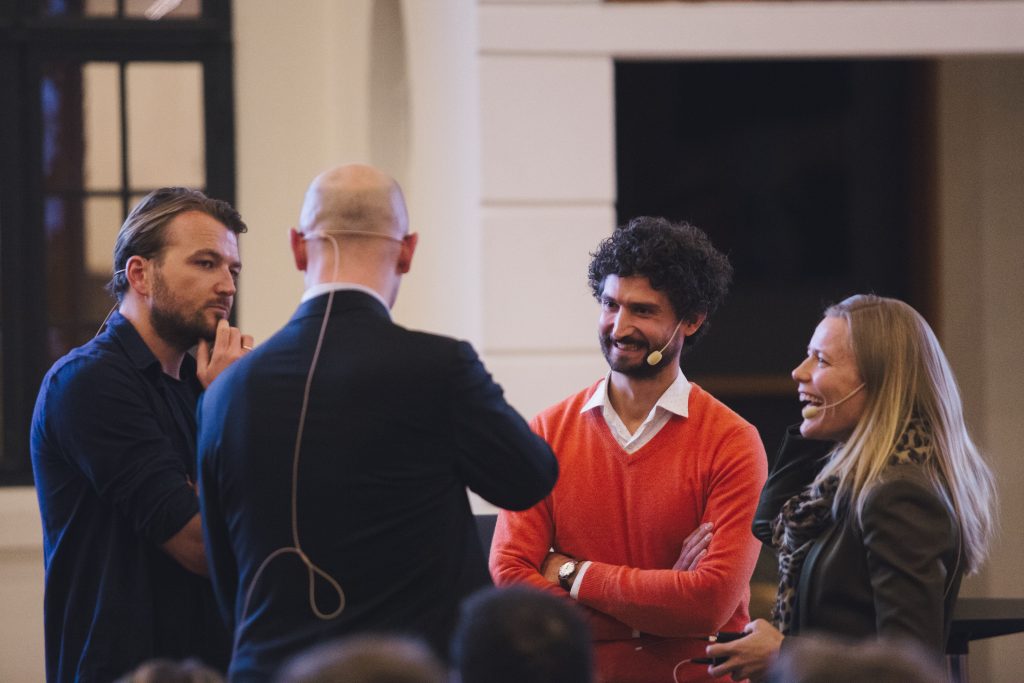By Alexandra Andhov, New York, US
It is the fifth year that Consensus brings together developers, investors, executives, regulators and educators to discuss the current stage of blockchain and cryptocurrencies in the United States and across the world. The blockchain technology summit offers not only interesting discussions, but also hands-on workshops and the possibility to directly interact with developers. Aside of an array of start-ups and financial institutions, you will also find established businesses such as IBM or Deloitte at Consensus. The amount of attendees can be overwhelming, but the organizers have done very well with an app that provides every participant with agenda, list of speakers and attendees, so they can individualize and narrow down their focus and interest.
Over the past months, I have been working on a research project that addresses technology and trust in the capital markets. Despite initially being slightly skeptical about blockchain and all the noise around cryptocurrencies, I have devoted a lot of time to try to understand this phenomenon and see its implications not only for capital markets, but also for companies and their corporate governance. During my Fulbright Fellowship at Cornell Law School this year, I had the possibility to discuss my project with numerous scholars at Cornell, but also across the United States, with scholars from Stanford, Wharton or Columbia, and many businesspeople and start-ups (more about my research in a future article). After substantial energy spent over tech and legal articles on blockchain, its character and limitations, I started to understand the possibilities that the blockchain is bringing. These are not necessarily connected to fully agent-free utopian markets, but rather a new way of corporate and market infrastructure. Blockchain is not only the technology behind the Bitcoin and other cryptocurrencies, but rather a construction that can be applied across diverse institutions and industries.
Consensus, organized by Coindesk, is a fully business oriented conference, which in my eyes emphasizes the main raison d’être of blockchain – collaboration and openness. Titans of Wall Street and the Fortune 500 discuss with start-ups their projects and share their successes and failures. In some workshops you can see directly what is behind the front-end and people openly discuss their codes and structure. Regulators acknowledge their inexperience with some recent technologies and invite developers for further analysis. Despite the business-mode that is emphasized by the venue itself (Hilton in Midtown New York), it is obvious that all of the projects are “in-progress” and everyone is still learning and no one has yet figured out the best way around. This is extremely important to understand and to embrace also in our Nordic environment.
Listening to many discussions and workshops, I have heard three main topics over the last three days that I would like to share with you here:
- Blockchain continues to be an experiment as we are still in the technology cycle. However, the new development is that many new industries are interested in exploring blockchain as a technology and establish new consortia;
- The most discussed form of blockchain has been hyperledger fabric;
- The most discussed issue among the developers seems to be governance, which in my understanding continues to show the need for human capital and value systems.
Over the upcoming weeks, I will elaborate more on these issues and share with you my thoughts.
Attending Consensus is truly an interesting experience and I would recommend it to those who are engaged and interested in technology, irrespective whether you are a blockchain supporter or skeptic. There are many opportunities to ask questions, even impertinent ones.
Lastly, the topic of blockchain consortia is extremely important for us in Nordics, and we will devote more time and focus to it during our conference on Law, Technology and Trust in September 2019.
Bio
Alexandra is an Assistant Professor of Corporate Law at the Faculty of Law, University of Copenhagen. In her research, she focuses on various issues of corporate law, corporate governance, CSR, FinTech, Legal Tech and Human Rights. She has worked with start-ups in the FinTech and Legal Tech industries for a number of years. She has established the Legal Tech Lab at the Faculty of Law, which collaborates with the Nordic Legal Tech Hub.













